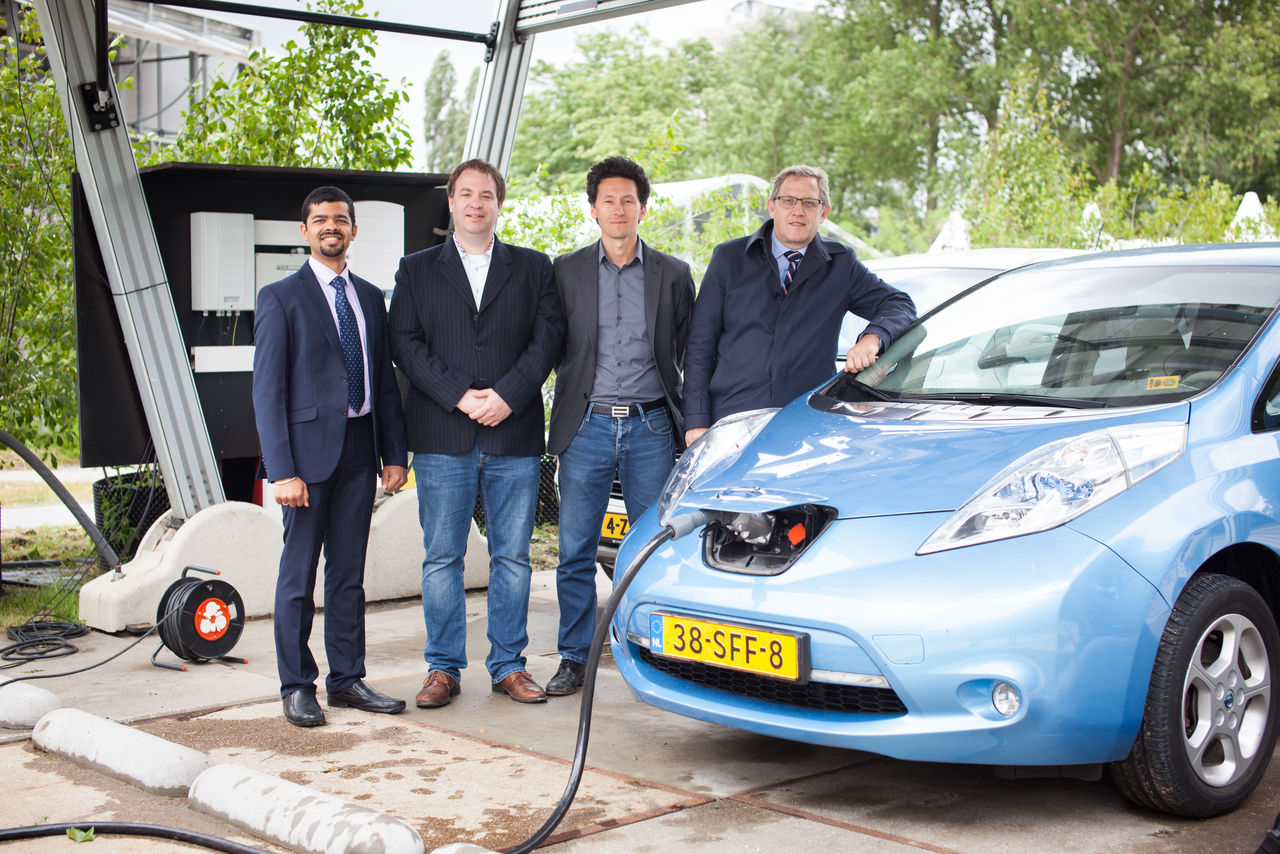Researcher Dr Gautham Ram Chandra Mouli developed a system which charges electric cars quickly and directly using solar power. He defended his PhD research last Monday at TU Delft.
Electric vehicles seem a promising future mode of transportation, but these cars are only sustainable if the electricity used to charge them comes from renewable sources and not from fossil fuel–based power plants, says Dr Gautham Ram Chandra Mouli, of the department DC systems, energy conversion & storage at the Faculty of Electrical Engineering, Mathematics & Computer Science.
The solar electric vehicle charging stations that exist today use the 50 Hz alternating current (AC) grid to exchange power from the solar power system to the electric car. According to Mouli, this is very inefficient. “Electric vehicles and solar power systems are fundamentally direct current (DC) in nature, so conversion to AC leads to unnecessary conversion steps and losses,” he writes in his thesis. “And two separate DC–AC inverters are required, increasing the cost and size of the power electronics.”
Why not use a single integrated converter that charges the electric vehicle from the solar power system on DC? That is what Mouli worked on during his PhD research. Based on Mouli’s doctoral research, TU Delft has developed a quick charger together with the Power Research Electronics and Last Mile Solutions companies which can charge cars directly with electricity from solar panels. The project is funded by the Dutch Urban Energy Top Consortium (TKI Urban Energy).
‘The energy from the charged car battery can also be used to supply your house with electricity’
“We designed a 10kW converter with an internal DC link and three terminals which can charge the vehicle both from the solar panels and the electricity grid,” says Mouli in a TU Delft press release. “The integrated DC charger is more efficient and is about three times smaller than existing solutions based on AC power exchange.”
If used, this charger could make the electricity grid as an interim stage in charging redundant, according to Mouli. In addition, the system works in two ways. “One, not only can you charge your electric car with solar power, but the energy from the charged car battery can also be used to supply your house with electricity. Two, you can also deliver electricity back to the grid, although this first requires conversion into alternating current.”
Do you have a question or comment about this article?
tomas.vandijk@tudelft.nl


Comments are closed.